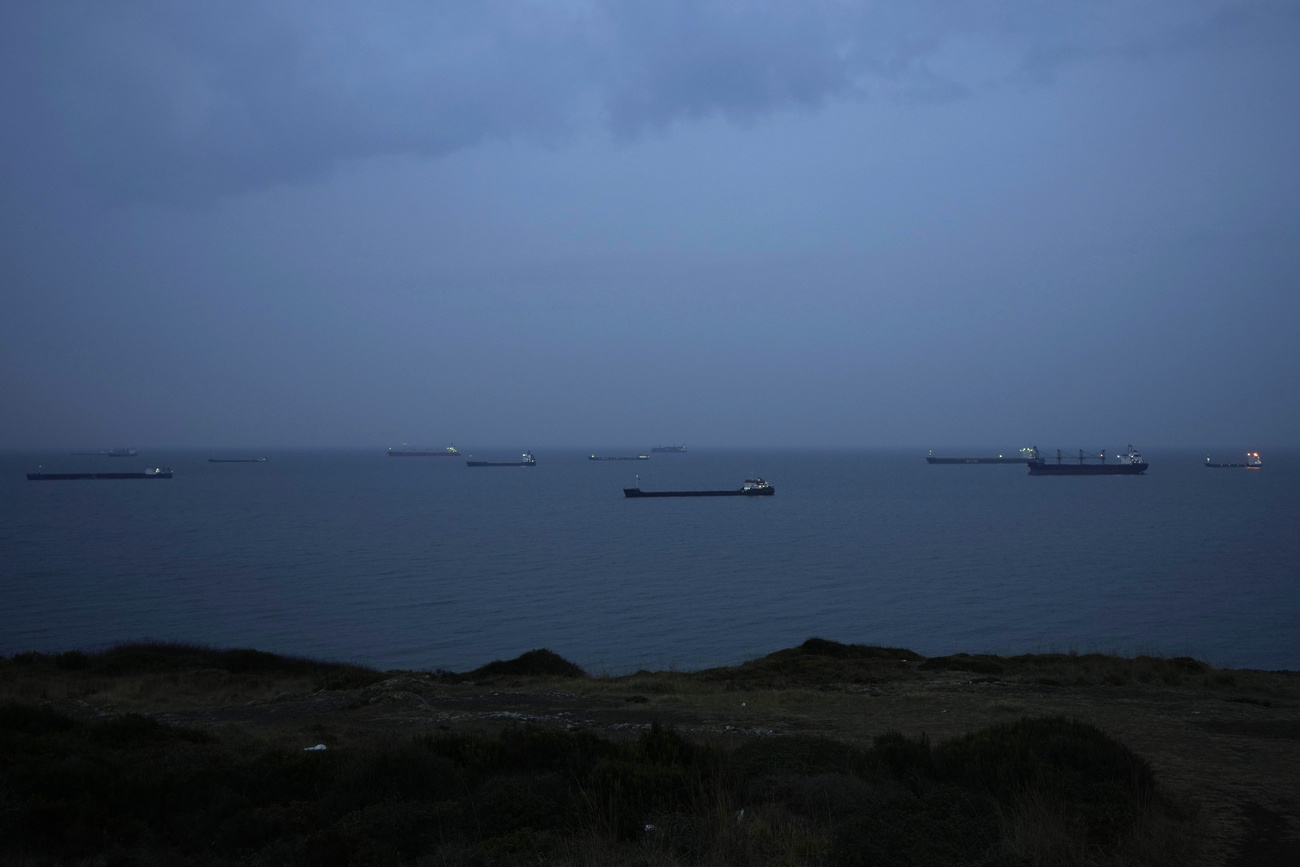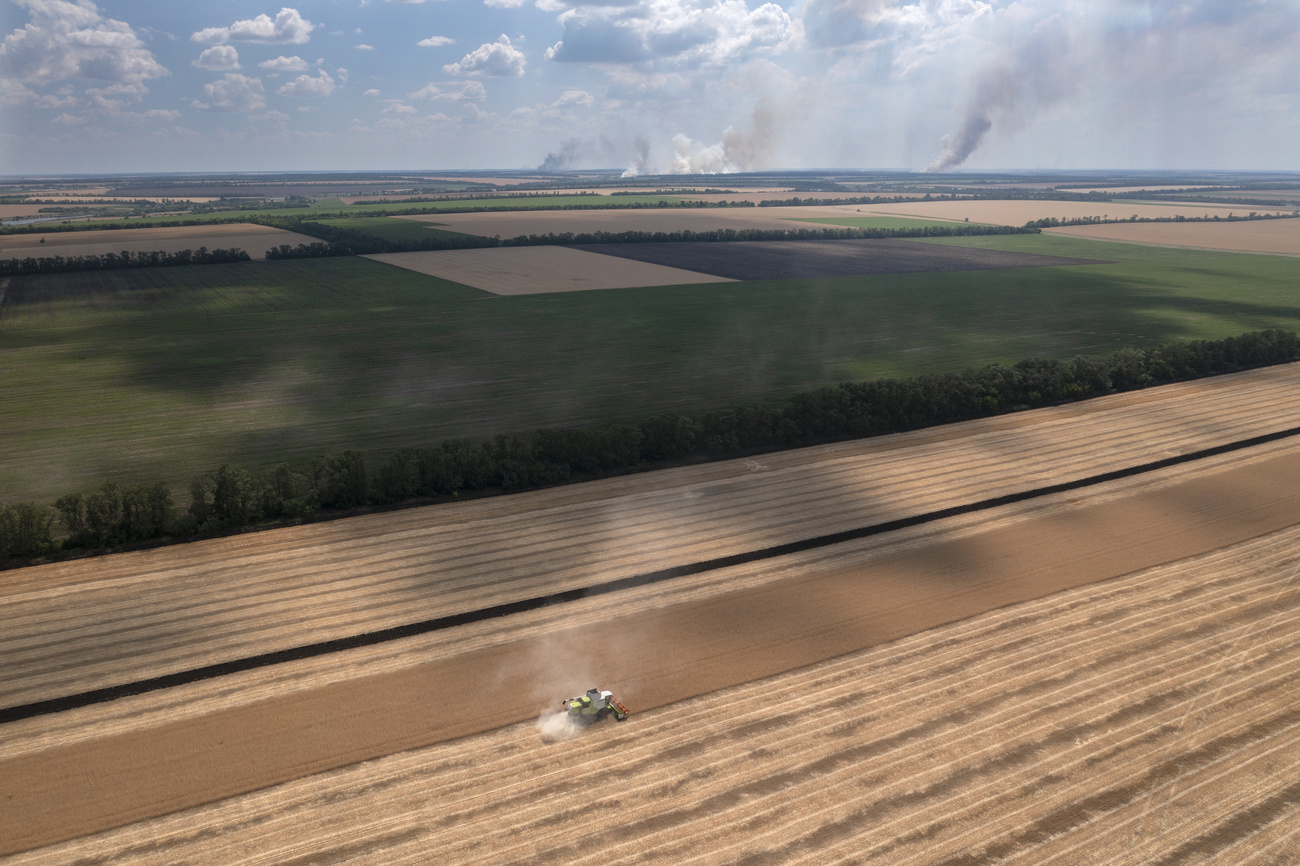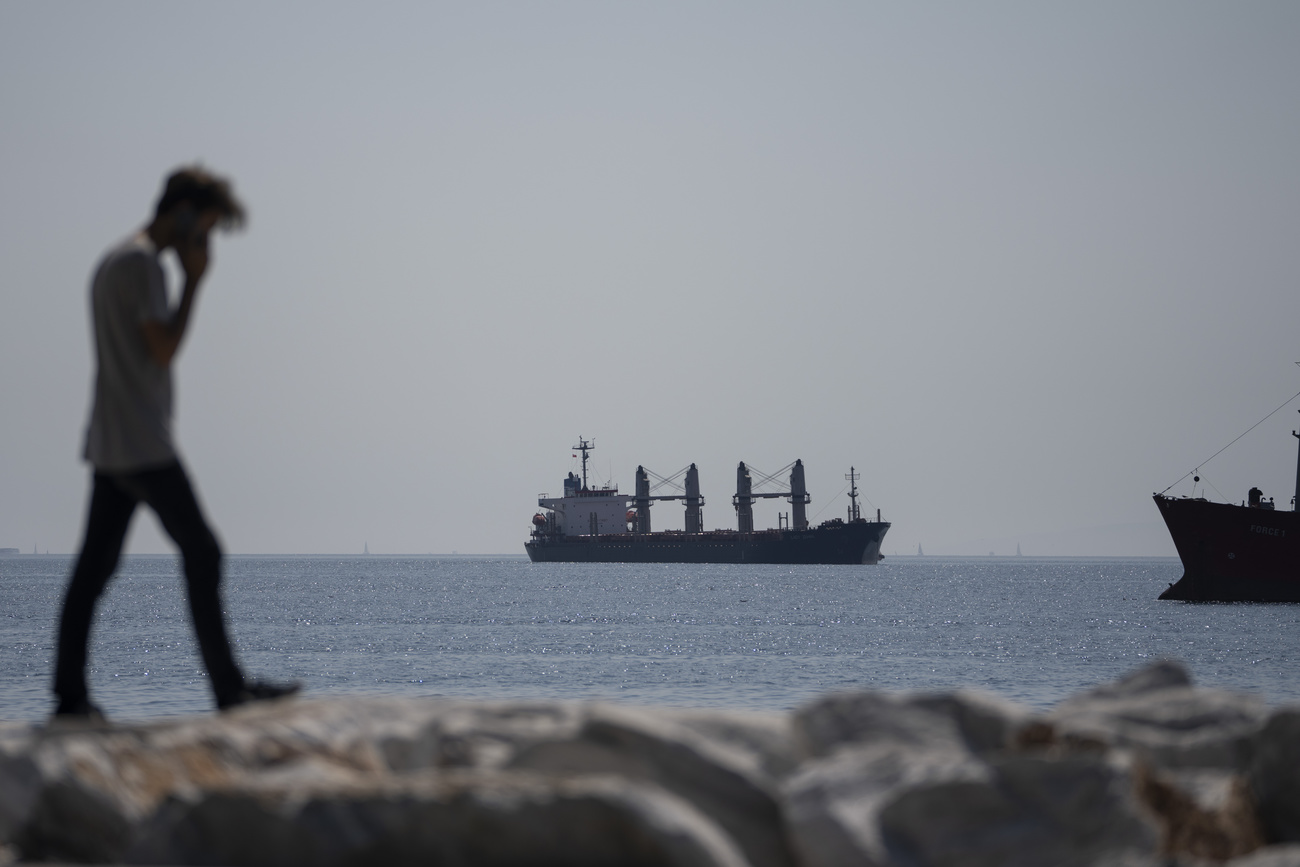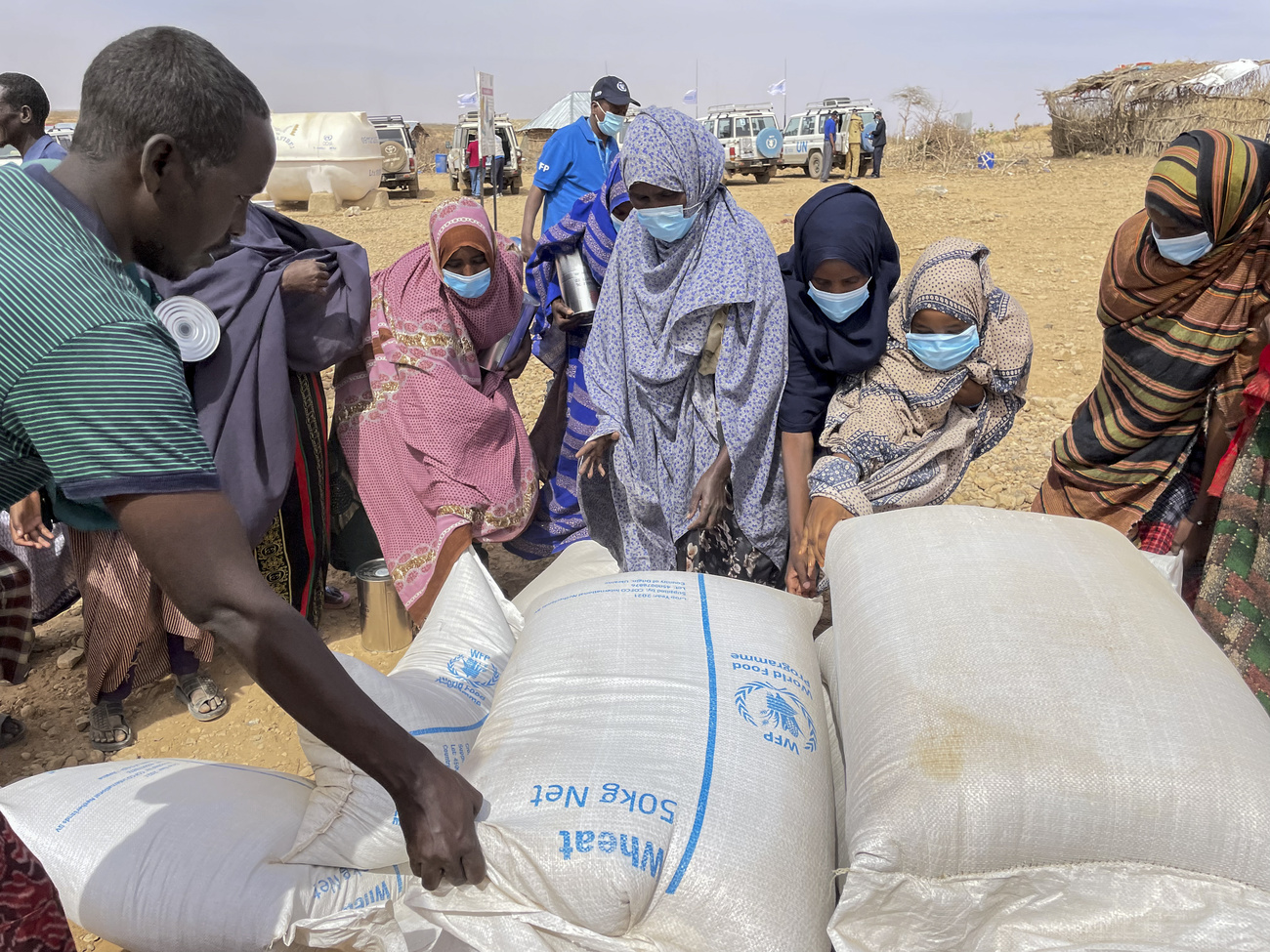Why the Black Sea grain deal is so important

Russia announced on July 17 that it was walking away from the Black Sea grain export deal. The deal was a rare case of Moscow and Kyiv working together. The consequences could deepen an ongoing food crisis in Africa. Here is what to know.
The Kremlin announced on July 17 that it had suspended its participation in the Black Sea grain export deal. The agreement – renewed three times already – had allowed Kyiv to export its grain from Ukrainian ports blocked by Russia through a safe corridor through the Black Sea.
United Nations secretary general António Guterres, who spearheaded the agreement, expressed his “deep regret” at Russia’s decision. The Black Sea grain deal had been “a lifeline for global food security and a beacon of hope in a troubled world” at a time when up to 783 million people face hunger worldwide. “They will pay the price,” he added.
“The Black Sea agreements ceased to be valid today,” a Kremlin spokesman saidExternal link. However, he added: “as soon as the Russian part of the agreements is fulfilled, the Russian side will return to the implementation of this deal, immediately.”
What is the Black Sea grain deal?
The so-called “Black Sea grain deal” was brokered by the UN and Turkey in July 2022 and includes two separate agreements: the Black Sea Grain Initiative (BSGI) between Ukraine, Russia, Turkey, and the UN; and the Memorandum of Understanding (MoU) between Russia and the UN. The former covered a period of 120 days – which had been renewed until now – while the latter a period of three years.
The deal was meant to alleviate a global food crisis. Climate change, conflict and the economic fallout from the Covid-19 pandemic have been pushing global food prices up, raising fears of famine in African and Middle Eastern countries. Food prices peaked in March 2022, a month after Russia, a top grain and fertiliser producer, invaded Ukraine, a top grain exporter. Syria, Yemen, and Somalia were among the countries that imported more than half of their wheat from Ukraine and Russia.
The BSGI allowed for the safe export of Ukrainian grain carried by commercial vessels through a maritime corridor in the Black Sea. The MoU commits the UN to helping Moscow overcome obstacles to its own food and fertiliser exports.
Why did talks stall?
Russia has repeatedly threatened to walk away from the deal, arguing that its side of the bargain was not being met.
Although Russian food and fertiliser exports are excluded from Western sanctions, Moscow says that restrictions on payments, logistics and insurance have effectively hampered its shipments.
Russia’s wheat exports have increased over the past year, but its fertiliser exports – especially ammonia and potassium-based fertilisers – have declined. On Monday, Guterres said that he was “aware of some obstacles that remained in the foreign trade of Russian food and fertilisers,” but highlighted the tangible progress the UN had made, such as sanctions carve-outs and a special payments mechanism for the Russian Agricultural Bank outside of SWIFT.
Among other demands, Moscow wants the UN to help it reconnect the Russian Agricultural Bank to the SWIFT payments system and resume its Black Sea ammonia exports via a pipeline from Russia to Ukraine that has stopped working.
In October 2022, Russia had briefly suspended its participation in the agreement in response to a drone attack on its fleet in Crimea. A Russian spokesman said its decision to retract from the deal was unrelated to an attack the day the deal expired targeting the bridge between Russia and Crimea. Russia has accused Ukraine of being behind the attack, but Kyiv has not claimed responsibility.
Russia has also complained that not enough grain exported via the corridor had gone to poorer countries.
READ MORE on the grain deal
- Early last year, Russia’s invasion of Ukraine disrupted supply chains and sent the prices of food and fertilisers to record-high levels. The Horn of Africa, which relied on food imports and faced severe drought, was particularly hard hit.
- In July 2022, after weeks of behind-the-scenes negotiations, the UN came up with a plan to allow Ukraine to resume its grain exports in the Black Sea, but its implementation promised to be complex.
- In November 2022, the grain deal was renewed for another four months after Russia threatened to opt out. At the time, some experts argued that Moscow did not want to lose the implicit support of non-aligned countries in the UN.
What has been achieved under the agreement?
The Black Sea grain deal has allowed for the export of 32.9 million tonnesExternal link of food commodities, mostly corn and wheat, to 45 countriesExternal link across three continents. Of this, 57% of total exports have gone to developing countries, although only 20% went to low and lower-middle income countries.
Connecting one of the world’s biggest exporters of grain back to world markets has contributed to an 11.6% drop in global food prices since July 2022, according to the UN Food and Agriculture Organization (FAO).
The world’s largest humanitarian organisation, the UN World Food Programme (WFP), has delivered over 725,000 tonnes of wheat through the agreement to people in crises in Afghanistan, the Horn of Africa, and Yemen. Even before the war in Ukraine, the WFP used to buy more than half of its grain supplies from the country. As of July, 80% of the WFP’s grain purchases had been made under the initiative.
The deal’s collapse would “absolutely hit Eastern Africa very, very hard,” Dominique Ferretti, the WFP senior emergency officer in the region, warned Geneva-based journalists in June. Millions of people are suffering from hunger in the region.
The last ship left Ukraine under the deal on July 16. In recent months, food exports through the initiative had dropped as inspection times – conducted by Ukrainian, Russian, Turkish, and UN officials together – increased and a Ukrainian port was excluded from the initiative. “Implementation is based on consensus, so all parties have to agree on the tempo of the operation,” the UN stated at the time.

More
End of Black Sea grain deal shouldn’t affect Switzerland, official says
What happens now?
Russia’s decision comes at a bad time. It is “a critical date because it’s when the harvest starts,” Maximo Torero, chief economist of the FAO saidExternal link earlier this month. He warned that failure to continue the agreement would lead to “a spike in terms of the prices of cereal commodities”. Wheat prices had started to rise on Monday.
Shortly after announcing its withdrawal from the deal, Russia said it could no longer guarantee the safety of ships navigating in the north-western Black Sea. Ukrainian President Volodymyr Zelensky announced he was ready to keep grain exports going without Russia’s buy-in.
Turkish president Recep Tayyip Erdoğan, one of the key initiators of the agreement, remained optimistic a solution could be found. “Despite the statement made today, I believe Russian president Vladimir Putin wants the continuation of this humanitarian bridge,” he saidExternal link just after Russia pulled out, adding that he would speak with his Russian counterpart later this week and meet him in August.
Edited by Virginie Mangin

In compliance with the JTI standards
More: SWI swissinfo.ch certified by the Journalism Trust Initiative












You can find an overview of ongoing debates with our journalists here . Please join us!
If you want to start a conversation about a topic raised in this article or want to report factual errors, email us at english@swissinfo.ch.